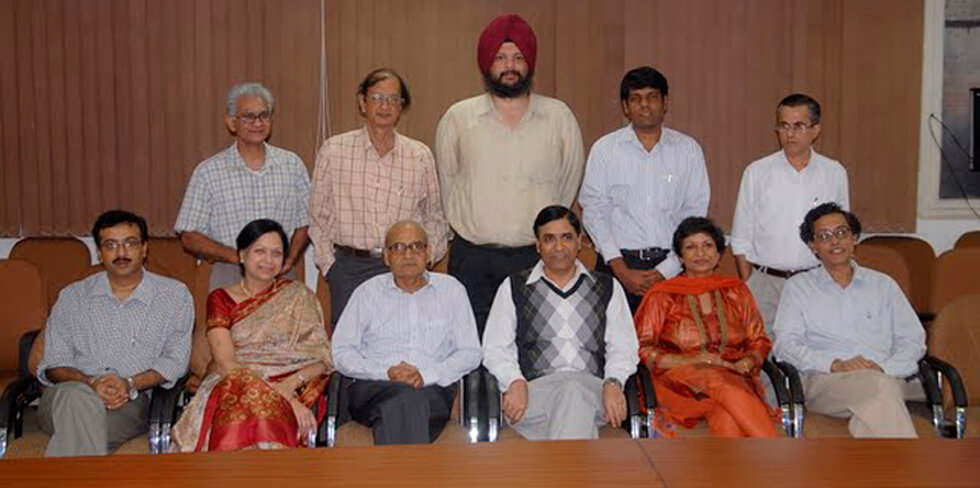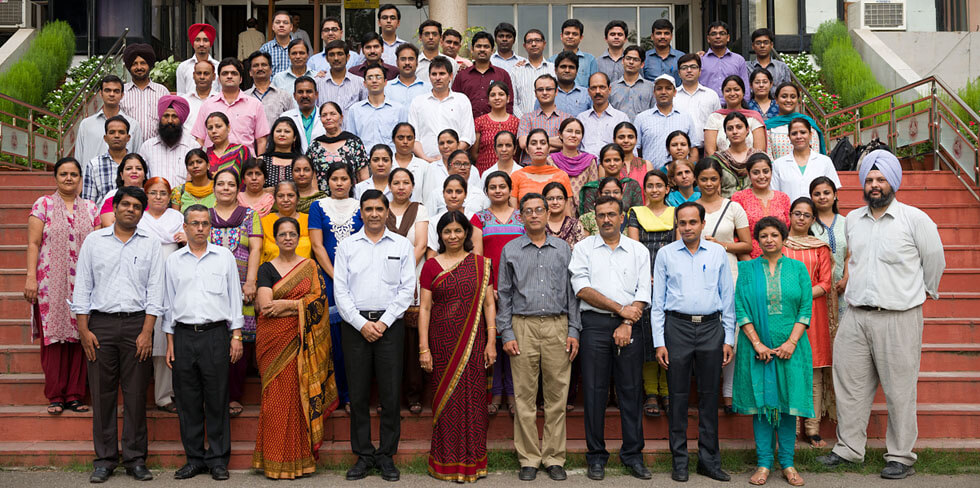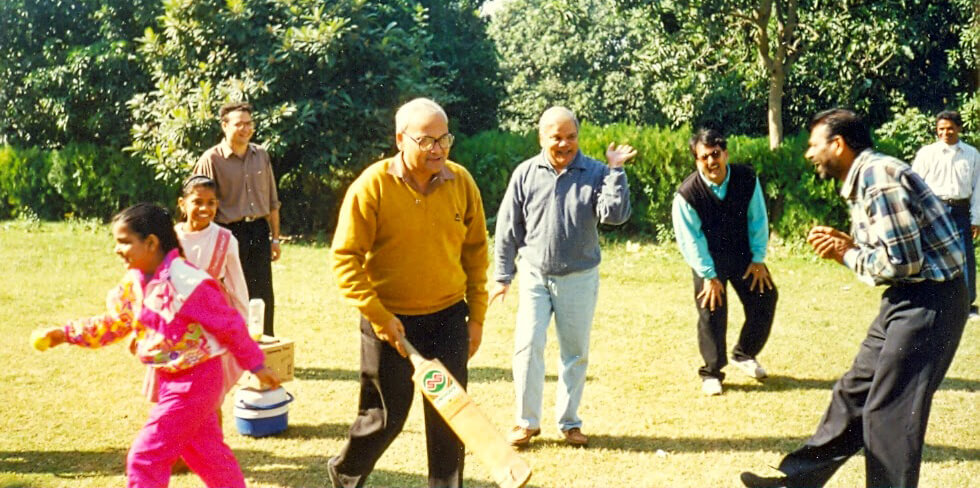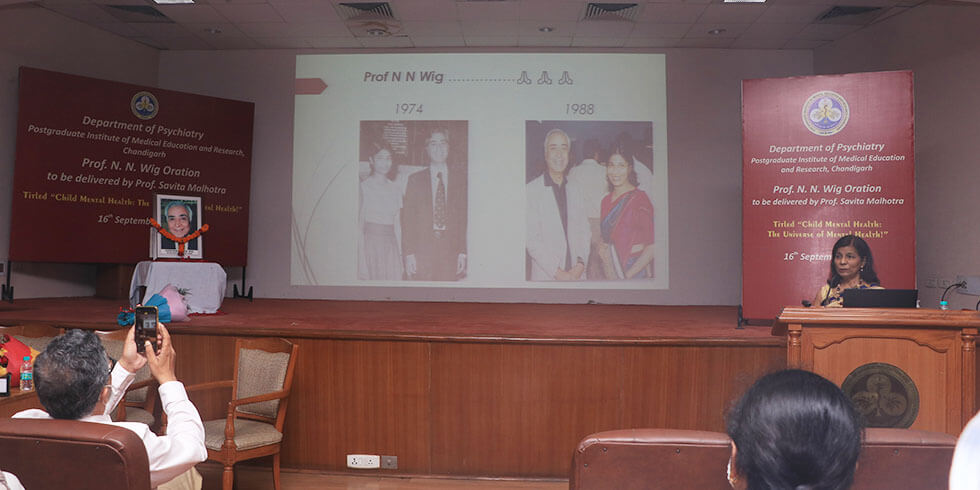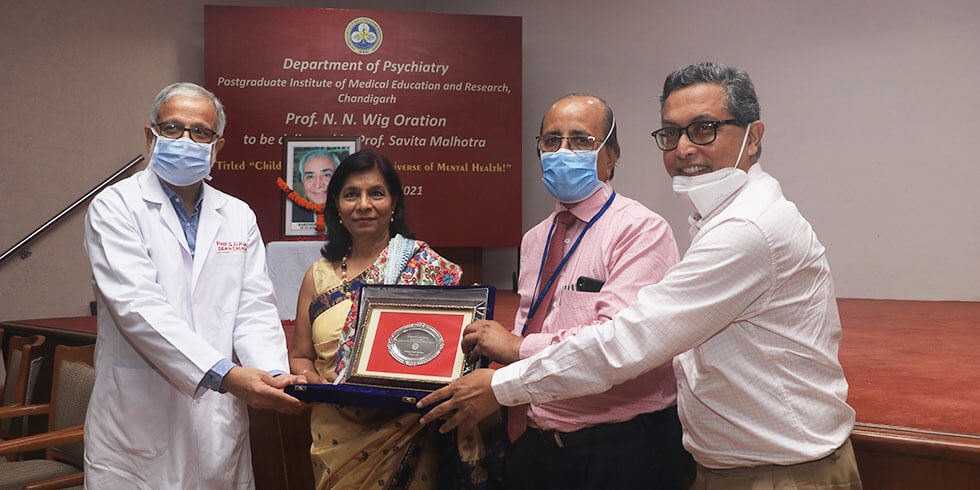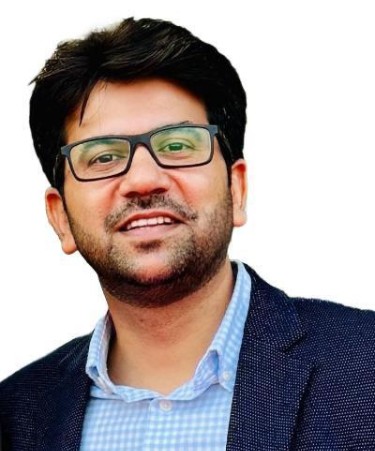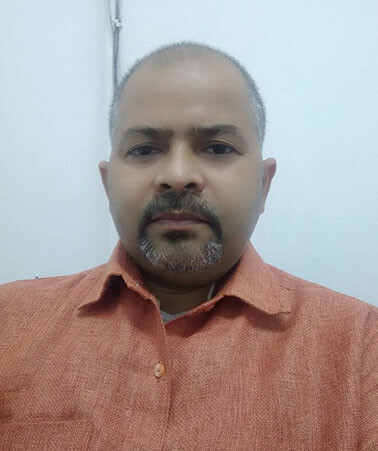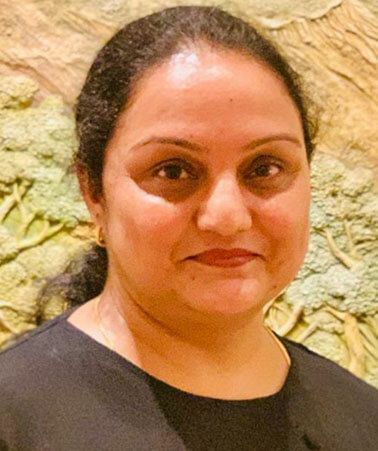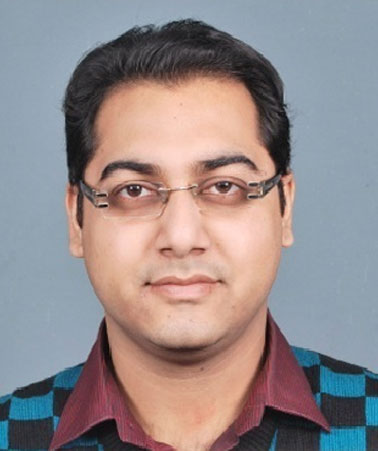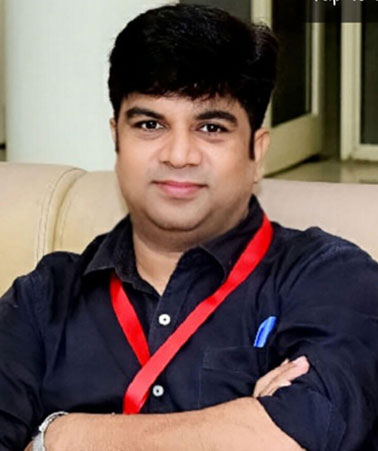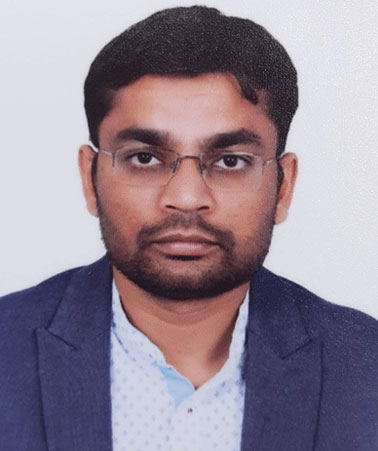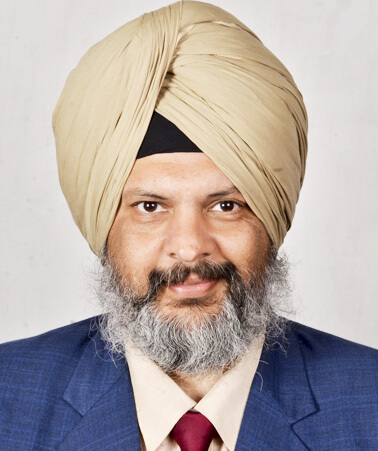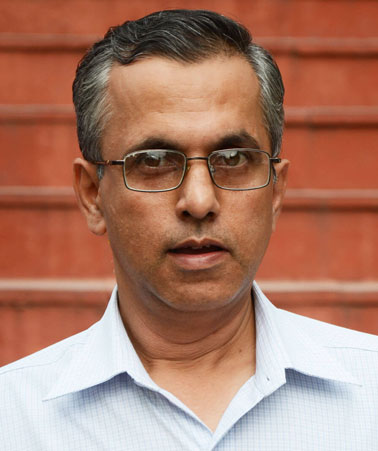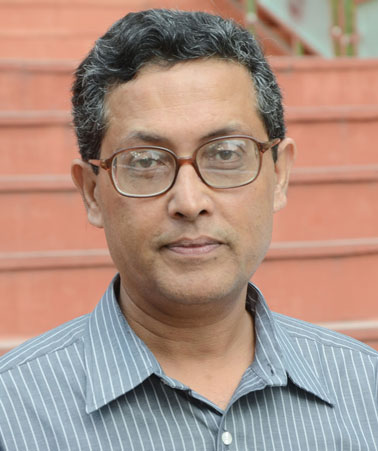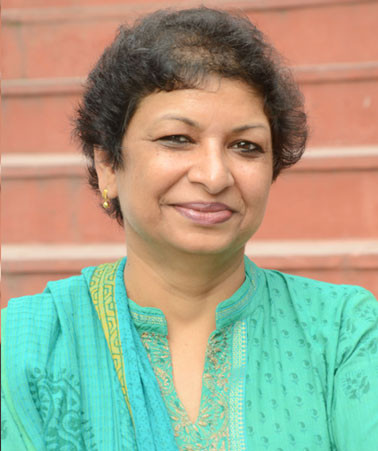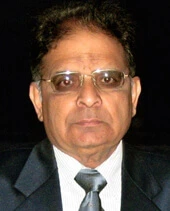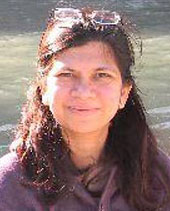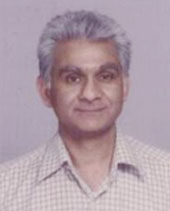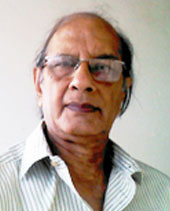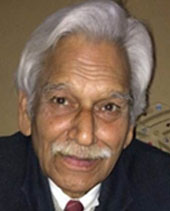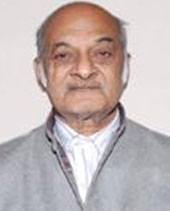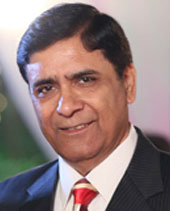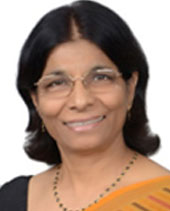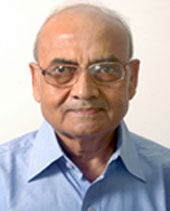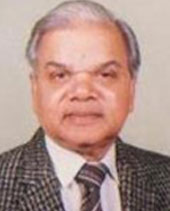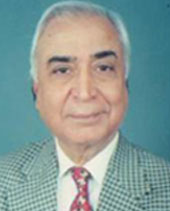To create such superspecialists in the field of addiction psychiatry, who can function as experts in the field, proficient in clinical acumen and skills of patient care; in active teaching, productive research, and advocacy.
For this purpose, “Addiction Psychiatry” has been defined as the superspecialty of psychiatry “that focuses on the prevention, evaluation, and treatment of substance use disorders (SUD) and other substance-related disorders (SRD) as well as related education and research. In addition, the addiction psychiatrist will be fully trained in techniques required in the treatment of the larger group of patients with dual diagnoses of addictive disorders and other psychiatric disorders.” (Accreditation Council for Graduate Medical Education, USA)
The candidate will have in-depth knowledge of the etiology, diagnoses and management of addictions (psychoactive SUDs and behavioural addictions). They will have a clear understanding of the relevant basic sciences as well as of the clinical and developmental aspects of addictions, including preventive and promotive aspects within the existing socio-cultural framework.
On completion of the course the candidate should be proficient in the theory and practice of addiction psychiatry and be able to deliver the highest quality of patient care, advocate on prevention and control of addictive disorders, be a competent and inspiring teacher and be able to pursue and supervise both clinical and experimental research.
The specific learning objectives are as follows: –
The D.M. Addiction Psychiatry Resident will gain knowledge and experience in dealing with
SRDs related to the following substances and groups of substances:
- Alcohol
- Opioids
- Tobacco
- Cannabis and hallucinogens
- Cocaine and other stimulants
- Benzodiazepines and other sedative/hypnotics
- Organic solvents or inhalants
- “Designer” and “club” drugs
- Over-the-counter, herbal and other “alternative” medications
- “Behavioural addictions”
Learning Objectives in the Cognitive Domain (Knowledge Base):
- Knowledge of the signs and symptoms of the use and misuse of the major categories (and combinations of the major categories) of substances of abuse as well as knowledge of the types of treatment required for each category where there are differences in treatment approach
- Knowledge of the signs of withdrawal from these major categories (and combinations of major categories) of substances and knowledge and experience with the range of options for treatment of the withdrawal syndromes and the complications commonly associated with such withdrawal syndromes
- Knowledge of the signs and symptoms of overdose, the medical and psychiatric sequelae of overdose, and experience in providing proper treatment of overdose
- Knowledge of the signs and symptoms of the social and psychological problems as well as the medical and psychiatric disorders that often accompany the chronic use and misuse of the major categories (and combinations of the major categories) of substances of abuse
- Knowledge and understanding of the special problems of various special groups, such as the children, adolescents, elderly, pregnant substance user and of the babies born to substance-using mothers
- Knowledge of significant other systems and dynamics relevant to the etiology, diagnosis and treatment of SRDs
- Knowledge of the neurochemical and structural bases, genetic vulnerabilities, risk and protective factors, epidemiology, and prevention of SRDs
- Knowledge of quality assurance issues pertaining to treatment of patients with SRDs
- Knowledge of the cost effectiveness of various treatment modalities for patients with SRDs
- Psychosocial, environmental and ecological context of occurrence of SUDs, and related interventions
- Preventive and rehabilitative interventions
- Control and legislative measures
Learning Objectives in the Psychomotor Domain:
Basic Skills:
- Management of intoxication, detoxification and other acute treatments of the user and misuse of the major categories (and combinations of major categories) of substances of abuse. This includes experience in working collaboratively with mental health professionals and other medical personnel in the emergency Department, intensive care units and general and psychiatric hospital units in the diagnosis and management of acute problems related to SRDs
- Experience in the use of psychoactive medications in the treatment of psychiatric disorders often accompanying the major categories (and combinations of major categories) of SRDs.
- Experience in the use of techniques required for confrontation of and intervention with a patient with a SRD. This includes particularly dealing with the defense mechanisms that cause the patient to resist entry into treatment and other changes that need to be made to sustain a good recovery. Related to this, the D.M. Resident will be familiar with the Stages of Change model as applied to addictions and the related motivational techniques
- Experience in the use of the various psychotherapeutic modalities involved in the ongoing management of the patient with a SRDs, including individual psychotherapies, couples therapy, family therapy, and group therapy
- Experience in working collaboratively with other mental health providers and allied health professionals, including nurses, social workers, psychologists, counselors, pharmacists, and others who participate in the care of the patient with a SRD
- Working with self-help and support groups, NGO‖s, community settings, other institutional settings like schools, colleges, prisons, etc
- Learn to be a team leader with overall responsibility of assessment and treatment planning and its execution
Research Skills:
- Familiarity with the major medical journals and professional-scientific organizations dealing with research on the understanding and treatment of SRDs
- Critical analysis of research reports, as presented in journal clubs and seminars
- Planning and conducting original research in the area of addiction psychiatry
Teaching & Supervision Skills:
Experience in teaching and supervising student clinicians in the care of patients with SRDs
Learning Objectives in the Affective Domain (Attitudinal Base):
- Acquire professional and ethical attitudes towards individuals with SRDs and to recognize beliefs or counter-transference that may impede the ability to identify and manage patients with SRDs
- Acquire mature and compassionate attitudes and empathic and objective clinical judgment towards patients with SRDs
- Recognize that patients with SRDs are diverse and that stereotypes interfere with recognition
- Consider SRDs in the same context as other psychiatric disorders: namely, SRDs are independent and also interactive with other disorders
- Appreciate that SRDs are treatable disorders that respond to specific modalities of treatment
- Acquire the ability to interact with other professionals to establish clinical approaches for patients with SRDs along with other co-morbidities including psychiatric, medical, and surgical
- Acquire the sensitivity to treat a variety of patients with SRDs, including women, the elderly, adolescents, the developmentally disabled, and minorities
- Acquire an objective approach and an intuitive attitude based on sound clinical experience and empirical data provided by research studies
- Acquire the ability to utilize resources for the short and long term management of SRDs in the community
CURRICULUM: OVERVIEW
DM Addiction Psychiatry candidates must fulfil all the Learning Objectives as detailed above.
The training program will include the following clinical components: Evaluation, consultation, and treatment of:
- Patients with primary SRDs and their families
- Medical and surgical patients in the emergency Department, intensive care units, and general wards of the hospital with acute and chronic SRDs, including acute intoxication and overdose
- Psychiatric inpatients and outpatients with chemical dependencies and co-morbid psychopathology, to include a broad range of psychiatric diagnoses, such as affective disorders, psychotic disorders, organic disorders, personality disorders, and anxiety disorders, as well as patients suffering from medical conditions commonly associated with SRDs such as hepatitis and HIV/AIDS
- Medication-dependent patients with chronic medical disorders/conditions (such as patients with chronic pain).
- Exposure to patients with SRDs related to the following substances:
Alcohol
Opioids
Cocaine and Other Stimulants
Marijuana and Hallucinogens
Benzodiazepines
Tobacco
Other substances of abuse, including sedatives, hypnotics or anxiolytics, organic solvents/inhalants
New Psychoactive Substances
Miscellaneous/unusual, e.g., nutmeg, designer or club drugs, etc.
- Rotations will provide trainees with experience in evaluating acute and chronic patients in inpatient and outpatient settings. There will be an identifiable structured educational experience in neuropsychiatry relevant to the practice of addiction psychiatry that includes both didactic and clinical training methods. The curriculum will emphasize functional assessment, signs and symptoms of neuropsychiatric impairment associated with SRDs, and the identification of physical illnesses and iatrogenic factors that can alter mental status, and behavior
- The program will provide specific experience in consultation to acute and chronic medically ill patients with SRDs who are being treated in emergency, intensive care, medical and/or surgical services of a general hospital. Supervision of addiction psychiatry residents in their clinical evaluation of such patients, as well as in their consultative role, is essential. The program will provide Residents with the opportunity to function at the level of a specialist consultant to primary care physicians and to intensive care specialists
- Experience in working with multidisciplinary teams as a consultant and as a team leader, including the integration of recommendations and decisions from consulting medical specialists and other professionals in related health disciplines
- Experience in working with patients who are participating in self-help programs
- Experience with opioid replacement (or substitution or maintenance) therapy
Teaching and Learning Methods
Clinical Teaching: There will be regular clinical teaching on cases worked up by the trainee along with discussions of conceptual issues and clinical diagnosis, differential diagnosis and management
Academic presentations and discussions: regular academic meetings geared to keep the trainee abreast with contemporary advances and developments in the field of addiction psychiatry would be held. These would consist of seminars, journal clubs, CCs, clinical meetings, etc., under supervision of a consultant Lecture Courses: Lectures will be held providing a broad and full coverage of addiction psychiatry and related areas
Thesis: Candidate will write a thesis on original research carried out by him/her Conferences: Conferences in addiction psychiatry, such as ground rounds, CCs, reading seminars, and journal clubs, will be specifically designed to complement the clinical experiences. Regular attendance by Residents and faculty will be documented
GUIDELINES
Treatment settings/postings
The trainees will have experience of working in a variety of settings and with full range of related disciplines. These should include in-patient, outpatient, C-L, emergency, and community:
- Inpatient Posting: Trainees will have experience of working in an in-patient unit for addiction psychiatry.
- OPD: Trainees will be posted to OPD attending to patients presenting with a range of addictive and dual diagnosis disorders
- Consultation-Liaison (CL): Trainees will involved in providing consultative service to patients referred from other specialties, general practitioners, medical officers, prisons and other correctional institutions, NGOs and other community settings. DM SRs will also be posted in the departmental CL service for a period of 2 months, where he/she is expected to learn to manage emergencies related to Addiction Psychiatry (like opioid overdose, delirium tremens) and to deal with patients with significant medico-surgical comorbidities (like cirrhosis of liver, acute/chronic pancreatitis, head injury)
- Medicine Posting: The trainee will be posted in the Department of Internal Medicine to familiarize himself with addictive problems in the general medical setups
- Emergency: Dealing with emergencies such as acute alcohol and drug overdose, intoxication and withdrawal, attempted suicide, violence, acute psychoses, emotional crisis, etc
- Community Postings: Trainees will be posted in community work for substance users and those in high risk situations, e.g., slums, mentally ill, institutionalized persons; working with NGO‖s providing care to addicted people, G.P., medical officers, etc
- Others: Trainees are expected to attend CME and conferences relating to addiction psychiatry. Deficiencies in training or special interest would be made up by periods of attachment to other units and courses
Schedule of Postings (tentative):
| Placeof Posting | 1st Yr | 2nd Yr | 3rd Yr |
|---|---|---|---|
| DDTC OPD | 6 months | 6 months | |
| DDTC inpatient ward | 6 months | 6 months | |
| Clinical psychology and Psychological | 1 month | ||
| Interventions | |||
| Medicine, and allied specialties | 2 months | ||
| C-L, including Emergency | 2 months | ||
| Community and Rehabilitation services | 4 months | ||
| related to de-addiction | |||
| Laboratory and Investigations | 1 month | ||
| Forensic/Legal (CFSL, brain mapping etc.) | 1 month | ||
| Optional posting (of trainee’s choice) | 1 month |
Thesis
The candidate should furnish proof of having undertaken original research of high order in a form of a research thesis. This work shall be submitted six months prior to the date of the final examination
The training programme will also provide the trainee with knowledge and understanding of research methodology so that they are able to evaluate critically the literature relevant to addiction psychiatry. In addition, the trainee will be encouraged to take up any other research project of some clinical innovation
Teaching Experience
The ultimate aim of the DM course will be to produce superspecialist in Addiction Psychiatry who will not only provide clinical service, but also will teach and train medical, premedical other professional involved in care of children. Hence, during their training the trainees will get opportunities to teach particularly trainees in general psychiatry, other medical students, social workers, nursing staff and other professionals involved in care of substance users. This is to prepare them for the teaching role of future consultant. The teaching should involve both clinical instruction and academic tuition
The passed out candidate are expected to join other institutions and start addiction psychiatry academic and service units at their respective places and/or guide other professionals and administrators in setting up and running such services in the country
KNOWLEDGE
In keeping with the objectives of the course, it is proposed that candidates should be exposed to a syllabus that consists of not only the core clinical discipline of Addiction Psychiatry but also the allied areas and disciplines comprising basic and clinical neurosciences, genetics, psychology, psychotherapies, clinical psychiatry, and social sciences. The candidate is expected to achieve a high degree of competence and expertise in both theoretical underpinnings and practical applications in clinical areas as well as basic sciences. The syllabus has been conceived to ensure both the breadth and depth in the knowledge in terms of recent advances, state-of-art development and historical evolution of the current knowledge base
In addition to core clinical areas, the course focuses on valuable exposure to medicine, CL, emergency assessment and management, psychological assessment, social assessment and social work, liaison with NGOs, schools, colleges, industrial workers, prison and judicial system, etc. The course also requires mandatory academic submissions, research, and conference/CME presentations
During the period of study the candidate shall work under the guidance and supervision with increasing clinical and practical responsibilities. Active participation in the Seminars, Journalclubs and CCs and Clinical Meetings are expected. The candidate shall be required to participate in the teaching and training programme for other students in the Department The candidate will continue to take up cases in special areas supervised by the respective supervisor beyond the period of posting. The candidate shall work whole time in the present Department with full clinical responsibilities in accordance with the provided schedule of postings. During the course the candidate will attend classes covering all the courses
Syllabus to be covered in the knowledge domain (by means of didactic lectures, seminars, small-group discussions, symposia, self-learning methods, etc.):
Basic sciences as related to addiction psychiatry
- Neuroanatomy
- Neurophysiology
- Neurochemistry
- Genetics
- Molecularbiology
- Neuroradiology
- Brain reward system
- Brain learning and memory system
- Brain stress system
- Personality
- Psychology
- Sociology
- Statistics
- Research methodology
- Principles of epidemiology
- Principles of public health and preventive medicine
Clinical addiction psychiatry
- Concept of drugs, substance, abuse, addiction, dependence, etc. Models of addiction
- Epidemiology of substance use and addictionsEtiology of addiction–biological
- Etiology of addiction–psychosocial
- Nosology and classification of substances and addictions
- Clinical features related to individual classes of substances (intoxication, withdrawal, specific complications, course, outcome)
- Injecting drug use
- Detection and diagnosis Assessment–clinicalAssessment–biological
- Assessment–psychological
- Assessment–socio-environmental
- Clinical & Research Instruments
- Treatment approaches and methods–motivational counseling and briefinterventions
- Treatment approaches and methods–detoxification
- Treatment approaches and methods–pharmacoprophylaxis o Treatment approaches and methods–relapse prevention
- Treatment approaches and methods–cognitive behavior therapy and otherpsychotherapies (Psychological and social therapies, family therapies, group therapies, etc.)
- Dual diagnosis–concept, epidemiology
- Dual diagnosis–assessment (including medical comorbidities, complications orissues)
- Dual diagnosis–management aspects
Recent advances and specialty areas
- Addiction in special populations – children & adolescents Addiction in special populations–women
- Addiction in special populations – others (captive populations like prisons, delinquency homes, correctional places etc; military, doctors and paramedical staff; any others)
- Recent advances in neurobiology of addiction
- Recent advances in genetics and epigenetics of addiction
- Response to the problem of substance abuse–International
- Response to the problem of substance abuse–National
- Legal provisions
- Forensic aspects
- Debate on de-criminalization
- ‘Addictive disorders’ on the horizon – putative newer entities like behavioural addictions (pathological gambling, ‘technological’ addictions like internet addiction,sex addiction, food addiction etc.)
- Supply reduction Demand reduction
- Harm reduction
- Any other new developments
For addiction psychiatry core competencies, the addiction psychiatry specialist (by the end of DM course) must be able to demonstrate his/her proficiency in the multiple roles as follows:
Medical Expert:
- Ability to conduct a comprehensive clinical evaluation of the patient with SUDs with and without concurrent disorders which includes the skills to gather specific personal and family history information, both from the patient and from relevant collateral informants; to elicit the symptoms and recognize the signs of substance-dependent conditions; to recognize the clinical manifestations of acute intoxication and withdrawal states; to utilize and interpret the appropriate ancillary tests and laboratory examinations; to identify substance-specific neuro-psychiatric complications; to produce a differential diagnosis between substance-induced and independent psychiatric disorders; to establish the presence of concurrent disorders and functional relationship between conditions, as well as the context in which they arise; to assess suicidal risk, loss of behavioural control and potential for violence; to look for and recognize the presence of physical complications specific to separate substances and drug-using practices; to assess the patient’s degree of disability and functional impairment; and the capacity to make appropriate use of all such information in deciding clinical management and treatment approach
- Ability to provide direct care to patients with SUDs with and without concurrent disorders Including the ability to predict the occurrence of sever clinical complications and to decide proper setting for treatment i.e. from outpatient to day therapy to Residential to inpatient care; the skills to treat acute intoxication and withdrawal states, both in hospital and on an ambulatory basis; the handling of overdose situations inemergency settings; an adequate familiarity with detoxification protocols in order to conduct elective drug discontinuation treatments; the knowledge of drug interactions, drug cross-tolerance, potentiation risks and abuse liability; the awareness of specific contraindications in the pharmacotherapy of psychiatric disorders in patients who are also substance abusers; the familiarity with addiction pharmacotherapies and with drug maintenance regimes; the skill to engage in the patient and conduct motivation enhancement interventions; the capability to assume a continuing care role and offer individual or group psychotherapies of proven value for addictive disorders (e.g: supportive-expressive, individual or cognitive behavioural, modified-dynamic, skills training and behavioural desensitization), and a familiarity with intervention strategies involving the family and social network
- Ability to provide concurrent psychiatric care / consults to patients who are receiving addiction treatment elsewhere, including an adequate familiarity with local community resources and addiction centers, their admission criteria, type of services and treatment curricula, the CL procedures and key contact persons; an adequate knowledge of the self help programs, their philosophy and established practices; the ability to communicate with and work alongside other therapists (often non-psychiatric or even non-professional); an awareness of possible misconceptions about psychiatric disorders and pharmacotherapy in such addiction therapy programs; and the skill to provide appropriate psychiatric advise and influence the clinical management without undermining the addiction treatment effort
- Ability to attend to legal / ethical issues including the decisions concerning legal competence, the operation of motor vehicles, the ability to care for dependent persons and occupational disability (see also Advocacy Role below)
The knowledge and skills will be obtained via:
- Exposure to a wide variety of generalist and specialist rotations
- The development of skills in addiction and concurrent disorder assessment and treatment
- The development of skills necessary for the development of an integrated differential diagnosis and a treatment plan for the patient, with the understanding of the difficulties and time-length to obtain accurate diagnoses in concurrent disorder patients
- The use of evidence-based literature for helping guide assessment and treatment
- The learning of a variety of core procedures (e.g. withdrawal management) pertaining to the practice of addictions and concurrent disorders
- Adequate exposure to inpatients in hospital-based rotations and outpatients in hospital-based and community-based ambulatory rotations
- The integration of basic and clinical sciences and how they apply to addiction issues of patients
- The understanding of epidemiological principles and how they apply to addiction issues of patients
The knowledge and skills will be taught in the following ways:
- Assignment to appropriate clinical services with in-patient and/or ambulatory components
- Attendance at academic hospital-based rounds and other educational activities
- Learning about evidence-based medicine as it applies to addiction psychiatry
- The teaching of assessment and treatment knowledge and skills through formal supervision, and the monitoring of competency through a log-mechanism
Evaluation: Via the supervisor of the Resident, and the monitoring of competency through a log-mechanism.
- In-training evaluations and the meeting of expectations
- Successfully passing Addiction Psychiatry exam questions and other evaluations that are already built into the Resident evaluation of their overall progress through the residency years
Establish effective relationships with patients and their families. It is very frequent that addiction and concurrent disorders impact on not just the person suffering from these conditions but the family as well. Often addiction issues occur in multiple members of a family as well. Families often have difficulties in understanding the treatment of addiction
Interact with community caregivers and other health resources to obtain and synthesize relevant information about the patient. Due to the complexity of concurrent disorder presentations, it is essential to be able to coordinate and communicate amongst treatment providers involved with a patient
- Develop a discharge plan for hospitalized patients and learn to involve the family physician, home care and other caregivers in the development of long-term community health planning. Relapses often occur due to lack of appropriate follow-up to continue a spectrum of care / matching of intensity of treatment to the patient‖s needs
- Learn to communicate effectively and efficiently with colleagues both verbally and through written records (i.e. the medical record, discharge summaries, consultation notes)
These skills will be taught and evaluated in the following ways:
- The daily observation of trainee performance by clinical supervisors and ongoing feedback
- A review of the written record by the attending physician and ongoing feedback
- Observation of Resident-staff, health-care provider, patient and family interactions during rotations
Collaborator:
Know when to consult other caregivers appropriately (Addiction and Concurrent Medical Disorders). Essential to treatment as concurrent disorder patients often need many aspects of their life to be dealt with simultaneously
Work with the interdisciplinary team to develop appropriate diagnostic and therapeutic strategies for patient care. Patients will often need a case management or other mechanism to help keep track of the treatment received. This still requires input from the multiple caregivers involved with the patient
These skills will be taught and evaluated in the following manner:
- Observation of daily practice patterns of attending staff
- Attendance at interdisciplinary rounds
- Feedback through in-training evaluations
Manager:
Learn to effectively balance patient care and health care resources.
- Understand the interplay between governments and the health care sector in allocating finite health care resources as well as understand navigating patients between systems (addiction, mental health, justice etc). Often systems have many barriers and exclusion criteria that inhibit the treatment of patients. Understanding the systems would allow for better patient care (this also overlaps with the Advocacy roles below)
- Work to develop effective and efficient patient management strategies. This includes avoiding duplication of services and/or trying to obtain appropriate care for a patient (e.g., concurrent disorder patients often have duplication of some services while have none for essential components of their treatment); Obtaining appropriate patient information from
- other health care sources in a timely fashion; and the understanding and appropriate use of information technology
- Learn to effectively delegate responsibility to medical students and JRs.
These skills will be taught and evaluated in the following manner:
- Assigning Residents to appropriate roles as they graduate through the core ranks
- Observation of trainees by rotation supervisors/attending physicians with feedback on an ongoing basis
Health Advocate:
Ability to adopt a preventive approach in clinical practice including an awareness of potential iatrogenic harm; of safe prescription practices; and of the appropriate management of chronic pain, chronic insomnia, chronic anxiety and chronic somatization conditions in dependency-vulnerable individuals; a familiarity with harm-reduction practices and the skills to promote them; an adequate knowledge of child neglect, child abuse and domestic violence issues, as well as the legal obligations of health care providers in such cases; the ability to assess fitness to operate vehicles or to perform high risk occupations, and an adequate knowledge of the health-care provider’s legal responsibilities in this area
- Identify important determinants of patients’ (and public) health, including the risks of substance use; sequelae of substance use behaviours; genetic / family planning issues etc
- Intercede on behalf of their patients. This is important as the patient weaves his/her way through complex health care institutions and services. This is especially important for individuals with concurrent disorders who are often excluded from treatments due to exclusion criteria of services that only deal with aspects of a person’s situation
- Recognize and respond to those issues where advocacy is important. This includes helping others understand the nature of addiction as a chronic illness with its biopsychosociocultural implications. This also includes advocating for people requiring social services / disability and for those who are being rejected for having a concurrent addiction issue
These skills will be taught through the following:
- Lectures / discussions at core lecture series and other rounds within the Department of Psychiatry
- Working with other health care providers or being a member of the interdisciplinary team to understand and gain skills on advocacy for patients
These skills will be evaluated through the following:
- Participation in or development of advocacy projects
- Observation and feedback from supervisor(s)
Scholar:
Develop effective learning and teaching strategies in Addiction Psychiatry. This includes learning skills in evidence-based medicine, bioethics, ethics, acquisition of knowledge; the development of self-assessment skills /reflective practice for ongoing self-development of knowledge, skills and attitudes; the learning and performing of effective teaching strategies to teach more junior house staff and other inter-professional learner groups
The opportunity for participation in research projects under the supervision of appropriate supervisors
These skills will be taught in the following manner:
- Through the development of self-learning techniques and reflective skills
- Provision of appropriate teaching courses
- The teaching of determinants of health in rotations
- Opportunities to be involved in research or teaching
These skills will be evaluated through:
- Regular feedback from supervisors
- Providing opportunities for research and teaching
- Being introduced to reflective practice / documentation of clinical, research, teaching and other scholarly work
Professional:
Development of appropriate professional attitudes toward individuals with addiction and concurrent disorders including an awareness of critical personal views, prejudices and unhelpful responses; the ability to overcome such negative attitudes and accept substance abusers as bona fide patients, deserving of a full professional commitment; the ability to tolerate the chronic and recurring nature of substance-abuse behaviour; the ability to persevere in the therapeutic effort despite poor patient compliance or limited treatment success; the ability to perceive and identify -driven behaviour, and to interpret accurately the patient’s difficulties to follow a treatment plan; the readiness to support disability entitlements on the grounds of addictive disorders; as well as the competence to recognize manipulation and to abstain from fostering maladaptive regression or unwarranted idleness; accepting the chronic, recurring nature of addictive illness; that these conditions can affect individuals from every sector of society, including social and professional peers; self-awareness of potential role as an enabler (e.g., prescribing medication that might continue or create new addiction issues); Understand professional obligations to patients and colleagues, including being punctual/timely; communication of essential information; upholding the Hippocratic Oath; maintaining confidentiality and understanding when it must be broken to protect the patient and other individuals’ safety; Exhibit appropriate personal and interpersonal professional behaviours. Including taking care of one’s own mental and physical health; communicating to others in a courteous and non-hostile manner; to insure patient care is maintained if away; maintain honesty and integrity; exercise compassion, empathy and understanding.
These skills will be taught and evaluated in the following manner:
- Appropriate teaching on these areas through supervisors and more formal teaching formats (e.g., core seminar series)
- Observation and feedback by supervisors and other health care workers, as well as from patients.
Assessment: Formative (i.e. internal assessment) and Summative (i.e., end-of-course assessment) No candidate shall be admitted to the examination unless the candidate has satisfied the following conditions:
- Has produced a certificate from the Head of the Department for having satisfactorily completed the training programme and put in an attendance of not less than 80% of the duration of the course
- Research work: The research work should have been accepted by the Institute on the basis of approval and recommendation of the Board of Examiners appointed for thispurpose before taking up the final examination
Passing the thesis will be mandatory requirement for passing the degree
Each candidate will be required to maintain a log book, wherein his/her clinical, teaching and research activities through the DM course will be logged. This will have to be verified and certified by the consultant in-charge.
Internal Assessment: Periodic Assessment will be done during the course. Semester wise assessment of the trainee including performance in theory exams in courses taught, clinical/practical exam, and assessment of day to day clinical and academic work as well as of discipline and responsibility by the faculty of the Department will be done and sent to the Dean of the Institute for information and record. This will constitute the internal assessment and will be shown to the external examiners at the time of final exams.
Scheme of examination (final exam):
The general scheme of examinations for DM shall be: Theory, practical and viva-voce. The candidate shall be permitted to take the examination only after all the conditions are fulfilled A. Theory: 3 papers (3 hours each)
Paper 1: Basic Sciences as applied to addiction psychiatry
Paper 2: Clinical addiction psychiatry including dual diagnosis
Paper 3: Recent advances and specialty areas in addiction psychiatry B. Clinical Examination and viva voce
Clinical examinations shall consist of one long case, one inpatient case management and two short cases. The duration of clinical examination and viva-voce will last at least 1 day.
Assessment of candidate
- A candidate shall be declared to have qualified for the DM degree in Addiction Psychiatry if the candidate has satisfied the members of the board of examiners individually or collectively that he/she has adequate knowledge in the specialty. There shall be no marking or ranking. The verdict shall be successful for unsuccessful
- A candidate shall successfully complete the examination in not more than 4 attempts failing which the candidate shall be required to seek fresh admission to the course
- The candidate whose research work has not been approved, may be permitted to re-submit within not less than six months and not more than one year after rejection
- The examination shall be conducted at the end of the 2½ yrs in the third year, but the candidate will complete the final 6 months posting to be able to receive the degree of DM Addiction Psychiatry.
Current Faculty
Past Faculty
Website Stats






 Users Today : 4
Users Today : 4 Users Yesterday : 0
Users Yesterday : 0 Users Last 7 days : 18
Users Last 7 days : 18 Users Last 30 days : 63
Users Last 30 days : 63
Website Stats






 Users Today : 4
Users Today : 4 Users Yesterday : 0
Users Yesterday : 0 Users Last 7 days : 18
Users Last 7 days : 18 Users Last 30 days : 63
Users Last 30 days : 63





